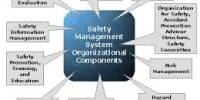Corporate Governance:
HDFC Bank recognizes the importance of good corporate governance, which is generally accepted as a key factor in attaining fairness for all stakeholders and achieving organizational efficiency. This Corporate Governance Policy, therefore, is established to provide a direction and framework for managing and monitoring the bank in accordance with the principles of good corporate governance.
Code of Corporate Governance:
The Bank believes in adopting and adhering to best recognized corporate governance practices and continuously benchmarking itself against each such practice. The Bank understands and respects its fiduciary role and responsibility to shareholders and strives hard to meet their expectations. The Bank believes that best board practices, transparent disclosures and shareholder empowerment are necessary for creating shareholder value.
The Bank has infused the philosophy of corporate governance into all its activities. The philosophy on corporate governance is an important tool for shareholder protection and maximization of their long term values. The cardinal principles such as independence, accountability, responsibility, transparency, fair and timely disclosures, credibility etc. serve as the means for implementing the philosophy of corporate governance in letter and spirit.
Corporate Governance Rating:
The bank was amongst the first four companies, which subjected itself to a Corporate Governance and Value Creation (GVC) rating by the rating agency, The Credit Rating Information Services of India Limited (CRISIL). The rating provides an independent assessment of an entity’s current performance and an expectation on its “balanced value creation and corporate governance practices” in future. The bank has been assigned a ‘CRISIL GVC Level 1’ rating for the second consecutive year, which indicates that the bank’s capability with respect to wealth creation for all its stakeholders while adopting sound corporate governance practices is the highest
Composition of the Board:
The Composition of the Board of Directors of the Bank is governed by the Companies Act, 1956, the Banking Regulation Act, 1949 and the listing requirements of the Indian Stock Exchanges where the securities issued by the Bank are listed. The Board has a strength of nine (9) Directors as on September 30, 2010. All Directors other than Mr. Aditya Puri, Mr. Harish Engineer and Mr. Paresh Sukthankar are non-executive directors. The Bank has four independent directors and five non-independent directors. The Board consists of eminent persons with considerable professional expertise and experience in banking, finance, agriculture, small scale industries and other related fields.
None of the Directors on the Board is a member of more than ten (10) Committees and Chairman of more than five (5) Committees across all the companies in which he/she is a Director. All the Directors have made necessary disclosures regarding Committee positions occupied by them in other companies.
Profiles of Directors:
Mr. C.M. Vasudev, Mr. Keki Mistry, Mr. Aditya Puri, Mr. Harish Engineer and Mr. Paresh Sukthankar are non-independent Directors on the Board.
Mr. Ashim Samanta, Dr. Pandit Palande and Mr. Partho Datta are independent directors on the Board.
Mr. Keki Mistry represents HDFC Limited on the Board of the Bank.
The Bank has not entered into any materially significant transactions during the year 2009-10, which could have a potential conflict of interest between the Bank and its promoters, directors, management and/or their relatives, etc. other than the transactions entered into in the normal course of business. The Senior Management have made disclosures to the Board confirming that there are no material, financial and/or commercial transactions between them and the Bank which could have potential conflict of interest with the Bank at large.
None of the directors are related to each other.
Board Committees:
The Board has constituted various committees of Directors to take informed decisions in the best interest of the Bank. These committees monitor the activities falling within their terms of reference. Various committees of the Board were reconstituted during the year.
The Board’s Committees are as follows:
- Audit and Compliance Committee
- Compensation Committee
- Investors’ Grievance (SHARE) Committee
- Risk Policy
- Credit Approval Committee
- Premises Committee
- Nomination Committee
- Fraud Monitoring Committee
- Customer Service Committee
Ownership Rights:
Certain rights that a shareholder in a company enjoys :
- To transfer the shares & receive the share certificates upon transfer within the stipulated period prescribed in the Listing Agreement.
- To receive notice of general meetings, annual report, the balance sheet and profit and loss account and the auditors’ report.
- To appoint proxy to attend and vote at the general meetings. In case the member is a body corporate, to appoint a representative to attend and vote at the general meetings of the company on its behalf.
- To attend and speak in person, at general meetings. Proxy cannot vote on show of hands but can vote on a poll.
- To vote at the general meeting on show of hands wherein every shareholder has one vote. In case of vote on poll, the number of votes of a shareholder is proportionate to the number of equity shares held by him.
- As per Banking Regulation Act, 1949, the voting rights on a poll of a shareholder of a banking company are capped at 10% of the total voting rights of all the shareholders of the banking company.
- To demand poll alongwith other shareholder(s) who collectively hold 5,000 shares or are not less than 1/10th of the total voting power in respect of any resolution.
- To requisition an extraordinary general meeting of any company by shareholders who collectively hold not less then 1/10th of the total paid-up capital of the company.
- To move amendments to resolutions proposed at meetings .
- To receive dividend and other corporate benefits like rights, bonus shares etc. as and when declared / announced.
- To inspect various registers of the company, minute books of general meetings and to receive copies thereof after complying with the procedure prescribed in the Companies Act, 1956.
The rights mentioned above are prescribed in the Companies Act, 1956 and Banking Regulation Act, 1949, whereever applicable, and should be followed only after careful reading of the relevant sections. These rights are not necessarily absolute.
The Memorandum and Articles of Association of the Bank provides the following rights to HDFC Limited, promoter of the Bank:
The Board shall appoint non-retiring Directors from amongst the Directors nominated by HDFC Limited with the approval of shareholders, so long as HDFC Limited and its subsidiaries, singly or jointly hold not less than 20% of the paid-up share capital of the Bank.
HDFC Limited shall nominate either a part-time Chairman and the Managing Director or a full time Chairman, with the approval of the Board and the shareholders so long as HDFC Limited and its subsidiaries, singly or jointly hold not less than 20% of the paid-up share capital of the Bank.
Under the terms of Bank’s organisational documents, HDFC Limited has a right to nominate two directors who are not required to retire by rotation, so long as HDFC Limited, its susbsidiaries or any other company promoted by HDFC Limited either singly or in the aggregate holds not less than 20% of paid up equity share capital of the Bank. At present, the two directors so nominated by HDFC Limited are the Chairman and the Managing Director of the Bank.
For detailed provisions, kindly refer to the Memorandum and Articles of Association of the Bank, which are available on the web-site of the Bank at www.hdfcbank.com.
Key Shareholders Rights:
HDFC Limited, Bennett, Coleman & Co. Ltd. and its group companies (the promoters of erstwhile Times Bank Limited) and Chase Funds had entered into a tripartite agreement dated November 26, 1999 for effecting amalgamation of Times Bank Limited with the Bank. Under this Agreement, Bennett Coleman Group has a right to nominate one Director on the Board of the Bank as long as its holding exceeds 5% of the share capital of the Bank. Currently, as on March 31, 2008, the Bennett Coleman Group holds 4.57% of the share capital of the Bank and Mr. Vineet Jain who represented the Bennett Coleman Group on the Board has since resigned as a Director of the Bank.
Code of Conduct:
All the Directors and senior management personnel have affirmed compliance with the Code of Conduct/Ethics as approved and adopted by the Board of Directors.
Listing
Listing on Indian Stock Exchanges:
The equity shares of the Bank are listed at the following Stock Exchanges in India:
| Sr.No. | Name and address of the stock exchange. | Stock Code |
| 1. | BombayStockExchangeLimited Phiroze Jeejeebhoy Towers, Dalal Street, Fort, Mumbai 400 023 | 500180 |
| 2. | The National Stock Exchange of IndiaLimited Exchange Plaza, 5th Floor, Bandra Kurla Complex, Bandra(East), Mumbai 400 051 | HDFCBANK |
Names of Depositories in India for dematerialisation of equity shares:
(ISIN INE040A01018)
- National Securities Depository Limited (NSDL)
- Central Depository Services (India) Limited (CDSL)
Listing on International Stock Exchanges:
| Sr.No. | Security description | Name and address of the stock exchange | Name and address of Depository |
| 1. | The American Depository Shares (ADS) (CUIP No.40415F101) | The New York Stock Exchange (Ticker HDB) 11, Wall Street, New York, N.Y.11005 | J P Morgan Chase Bank, N.A.4, New York Plaza, 13th Floor, New York, NY10004 |
| 2. | Global Depository Receipts (GDRs) (ISIN No. US40415F20 02) | Luxembourg Stock Exchange Postal Address: 11,av de la Porte-Neuve, L-2227 Luxembourg. Mailing Address: B.P. 165, L-2011, Luxembourg | Deutsch Bank Trust Company America 2, Bourlevard Konrad Adenauer, L- 1115 Luxembourg |
The Depository for ADS and GDRs are represented in India by J P Morgan Chase Bank NA and ICICI Bank Ltd respectively
Share Transfer Process:
The bank’s shares which are in compulsory dematerialised (demat) list are transferable through the depository system. Shares in physical form are processed by the Registrars and Share Transfer Agents, Datamatics Financial Services Ltd and approved by the Investors’ Grievance (Share) Committee of the Bank or authorised officials of the Bank. The share transfers are processed within a period of 15 days from the date of receipt of the transfer documents by Datamatics Financial Services Ltd.
- Your Bank has had a consistent dividend policy that balances the dual objectives of appropriately rewarding shareholders through dividends and retaining capital, in order to maintain a healthy capital adequacy ratio to support future growth. It has had a consistent track record of moderate but steady increases in dividend declarations over its history with the dividend payout ratio ranging between 20% and 25%. Consistent with this policy, and in recognition of the Bank’s overall performance during this financial year, your directors are pleased to recommend a dividend of Rs.12 per share for the financial year ended March 31, 2010, as against Rs.10 per share for the year ended March 31, 2009.
Details of dividend declared by the Bank:
| 2009-2010 | 120% |
| 2008-2009 | 100% |
| 2007-2008 | 85% |
| 2006-2007 | 70% |
| 2005 – 2006 | 55% |
| 2004 – 2005 | 45% |
| 2003 – 2004 | 35% |
| 2002 – 2003 | 30% |
| 2001 – 2002 | 25% |
| 2000 – 2001 | 20% |
| 1999 – 2000 | 16% |
| 1998 – 1999 | 13% |
| 1997 – 1998 | 10% |
| 1996 – 1997 | 8% |
Board Meetings:
During the year under review, six Board Meetings were held on April 23, 2009; July 14, 2009; October 14, 2009; December 21, 2009; January 15, 2010; and March 19, 2010.
Details of attendance at the Bank’s Board Meetings held during the year under review, directorship, membership and chairmanship in other companies for each director of the Bank are as follows:
Name of Director | Attendance at the Bank’s Board Meetings | Directorship of other Indian Public Limited Companies | Membership of Other Companies’ Committees | Chairman-ship of Other Companies’ Committees |
Mr. Jagdish Capoor | 5 | 3 | 3 | 2 |
Mr. Aditya Puri | 6 | Nil | Nil | Nil |
Mr. Keki Mistry | 5 | 13 | 10 | 2 |
Mrs. Renu Karnad | 6 | 13 | 5 | 2 |
Mr. Arvind Pande | 6 | 5 | 3 | Nil |
Mr. Ashim Samanta | 6 | 1 | Nil | Nil |
Mr. C. M. Vasudev | 5 | 4 | 2 | Nil |
Mr. Gautam Divan | 6 | 2 | 1 | 1 |
Dr. Pandit Palande | 6 | Nil | Nil | Nil |
Mr. Harish Engineer | 6 | Nil | Nil | Nil |
Mr. Paresh Sukthankar | 6 | Nil | Nil | Nil |
Compliance with Mandatory Requirements:
The Bank has complied with all the mandatory requirements of the Code of Corporate Governance as stipulated under Clause 49 of the Listing Agreement with the Stock Exchanges in India.
Compliance with Non-Mandatory Requirements:
a) Board of Directors
The Bank maintains the expenses relating to the office of non-executive Chairman of the Bank and reimburses all the expenses incurred in performance of his duties. Pursuant to Section 10(2A) of the Banking Regulation Act, 1949, all the directors, other than the Chairman and/or whole-time director, cannot hold office continuously for a period exceeding 8 (eight) years.
b) Remuneration Committee
The Bank has set-up a Compensation Committee of Directors to determine the Bank’s policy on remuneration packages for all employees. The Committee comprises majority of independent directors. Mr. Jagdish Capoor is the Chairman of the Committee and is not an independent Director.
c) Shareholder’s Rights
The Bank publishes its results on its website at www.hdfcbank.com which is accessible to the public at large. Besides, the same are also available on www.corpfiling.co.in. A half-yearly declaration of financial performance including summary of the significant events is presently not being sent separately to each household of shareholders. The Bank’s results for each quarter are published in an English newspaper having a wide circulation and in a Marathi newspaper having a wide circulation in Maharashtra. Hence, half yearly results are not sent to the shareholders individually.
d) Audit Qualifications
During the period under review, there is no audit qualification in the Bank’s financial statements. The Bank continues to adopt best practices to ensure regime of unqualified financial statements.
e) Training of Board Members
The Bank’s Board of Directors consists of professionals with expertise in their respective fields and industry. They endeavor to keep themselves updated with changes in global economy and legislation. They attend various workshops and seminars to keep themselves abreast with the changes in the business environment.
f) Mechanism for evaluating non-executive Board Members
The Nomination Committee evaluates the non-executive Board members every year. The performance evaluation of the members of the Nomination Committee is done by the Board of Directors excluding the Directors being evaluated.
g) Whistle Blower Policy
The Bank has adopted a Whistle Blower Policy pursuant to which employees of the Bank can raise their concerns relating to fraud, malpractice or any other activity or event which is against the interest of the Bank or society as a whole.The Audit and Compliance Committee of the Bank has reviewed the functioning of the Whistle Blower mechanism. None of the personnel has been denied access to the Audit and Compliance Committee.
















